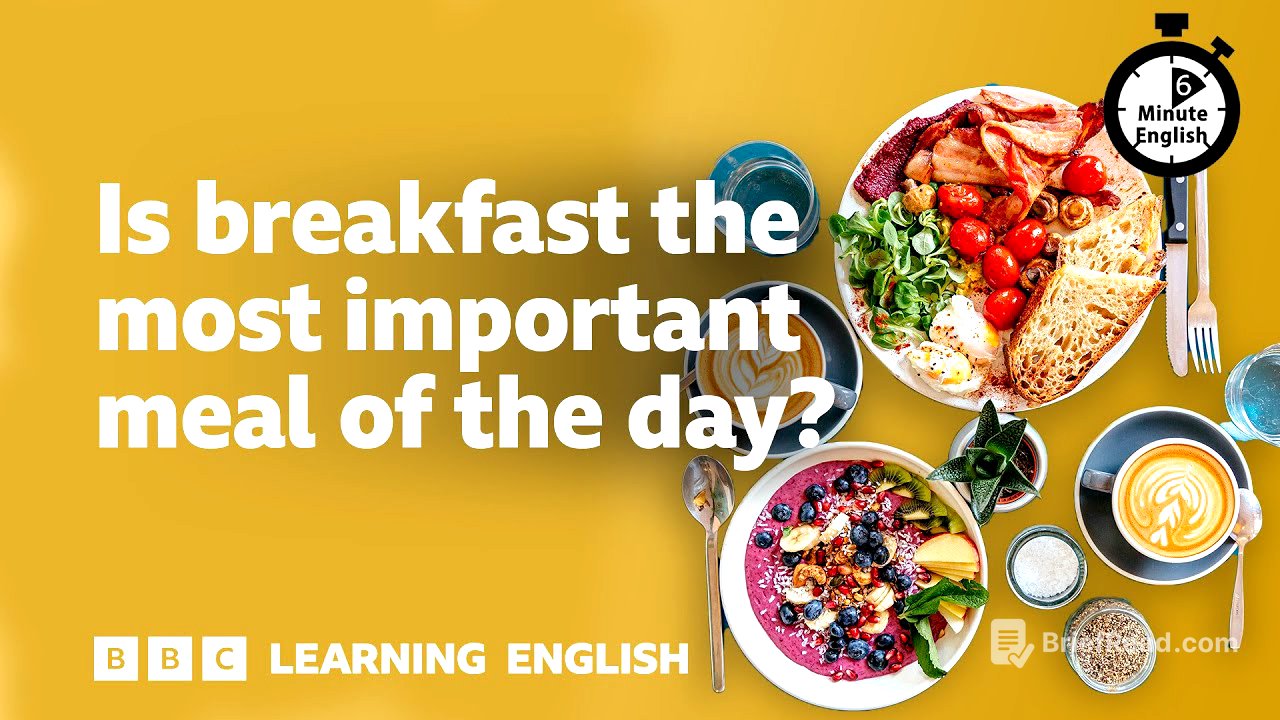TLDR;
This episode of 6 Minute English discusses the importance of breakfast and its impact on health and weight management. It covers expert opinions on how eating a substantial breakfast can aid metabolism, control appetite, and prevent blood sugar spikes. The programme also explores reasons why people skip breakfast and recaps key vocabulary related to the topic.
- Eating a large breakfast can help your body better metabolise food.
- Skipping breakfast can lead to less effective appetite control.
- Key vocabulary includes "pauper," "spike," "metabolism," "skip," "lean," and "appetite control."
Introduction [0:00]
Georgie and Phil introduce the topic of the show: the importance of breakfast. They share their own breakfast habits, with Georgie having a pastry and coffee, and Phil having porridge earlier in the morning. They introduce Professor Alexandra Johnstone, a nutrition scientist, who supports the idea of eating breakfast like a king and dinner like a pauper, emphasising its importance for maintaining a healthy weight. The episode will explore the reasons behind this recommendation and introduce new vocabulary.
Quiz Question [1:38]
Phil poses a quiz question for Georgie: According to a recent survey, which of the following is the most popular breakfast in the UK: eggs, toast, or cereal? Phil guesses toast, and the answer will be revealed later in the programme.
The Discussion [2:01]
Courtney Peterson, a researcher on eating behaviours, explains how the time of day affects how our bodies process food. Eating a large breakfast or lunch allows the body to better metabolise food, preventing high blood sugar spikes and potentially burning more fat and calories. In contrast, eating most food later in the day slows metabolism. The term "metabolism," referring to the body's chemical processes that convert food into energy, and "spike," indicating a sudden increase in a measured value like blood sugar levels, are defined. Professor Alexandra Johnstone adds that people who regularly eat breakfast tend to be leaner and have better appetite control, making it easier to manage food intake throughout the day. "Breakfast skipping" is defined as not eating breakfast, and "lean" is defined as not being fat. "Appetite control" is defined as the brain's regulation of how much one should eat.
Quiz Answer [5:00]
Georgie reveals the answer to the quiz question. While toast was the most popular breakfast in London, the most popular breakfast in the UK overall is cereal, according to a survey by a cereal manufacturer. Therefore, Phil's guess of toast was incorrect.
Vocabulary Recap [5:20]
The episode concludes with a recap of the vocabulary:
- Pauper: An old-fashioned word for a very poor person.
- Spike: A sudden increase in data.
- Metabolism: The chemical processes inside your body, especially those which process food.
- Skip: To miss something or not do it.
- Lean: Not fat.
- Appetite control: How your brain decides how much you should eat.









